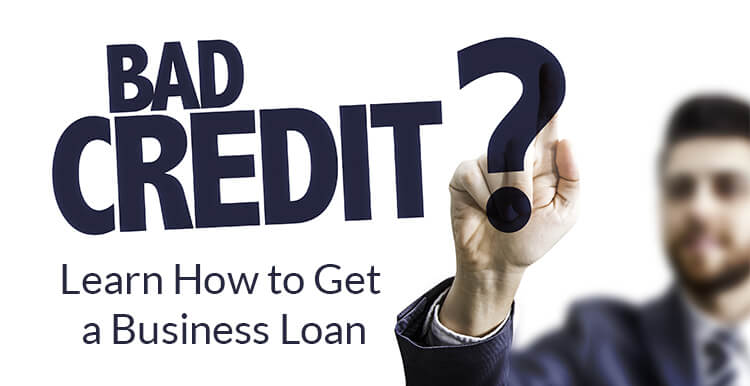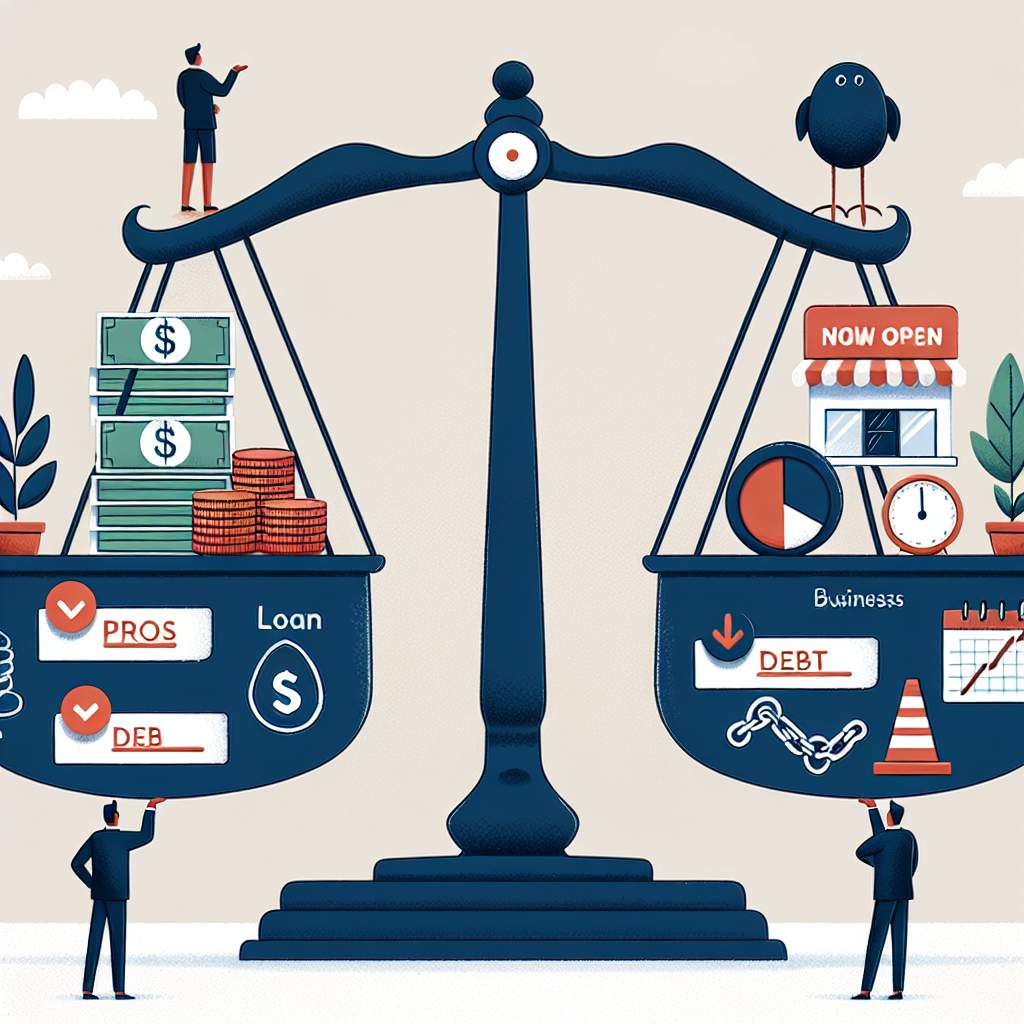
Finding the right financing can be a challenge for small business owners, especially those dealing with bad credit or ;ow credit rating . In March 2025, the landscape of business loans for bad credit is evolving, offering various options for entrepreneurs who may have previously struggled to secure funding. This article explores the best small business loans available for those with personal credit scores below 670, providing insights into eligibility, terms, and the overall lending environment.
Understanding Bad Credit Business Loans
What is a Bad Credit Business Loan?
A bad credit business loan is specifically designed for entrepreneurs whose personal credit scores range from “bad” to “fair,” typically defined as FICO scores below 670. These loans are intended to assist business owners in obtaining necessary funding despite their less-than-ideal credit standings. However, borrowers should be prepared for higher interest rates and less favorable terms compared to traditional loans. Lenders often require collateral or personal guarantees, assessing both personal and business credit histories during the application process. Some lenders may prioritize business revenue over credit scores, offering a potential lifeline for small business owners facing financing challenges.
Who Qualifies for a Business Loan with Bad Credit?
Eligibility for a business term loan with bad credit can vary, but many lenders are willing to consider business owners with personal credit scores as low as 500. Besides credit scores, factors such as corporate history , annual revenue, and overall financial health play a crucial role in determining qualification. Most lenders require a minimum time in business of at least six months and an annual revenue that can range from $50,000 to $300,000. Additionally, providing a personal guarantee may improve the chances of loan approval, allowing bad credit borrowers to access the funds they need to enhance their business operations.
Impact of Bad Credit on Business Loan Applications
Bad credit can have a significant impact on a business owner’s ability to secure a loan. Many lenders categorize applicants with dismal credit as high-risk borrowers, which often results in higher interest rates, reduced loan amounts, and stricter repayment terms. The scrutiny of financial documents intensifies, requiring business owners to present detailed bank statements, tax returns, and cash flow analyses. Despite these challenges, some online lenders adopt a more flexible approach, considering alternative criteria such as business revenue and operational history rather than relying solely on credit scores. This shift offers hope for entrepreneurs seeking a business term loan with bad credit.
Best Business Loans for Bad Credit

Secured vs. Unsecured Business Loans
When exploring the options for subprime business loan , it’s essential to understand the distinction between secured and unsecured loans. Secured business loans require collateral, such as property or equipment, which can significantly lower interest rates and improve overall loan terms. This collateral provides a safety net for the lender, as they have a claim to the asset if the borrower defaults. In contrast, unsecured loans do not require collateral, making them more accessible but often associated with higher interest rates and stricter eligibility criteria. For borrowers with bad credit, secured loans may offer a more viable pathway to obtaining financing, but they must weigh the risk of losing valuable assets against the benefits of lower costs and enhanced terms.
Working Capital Loans for Small Businesses
Working capital loans are a crucial lifeline for small business owners, especially those facing cash flow challenges. These short-term financing options are designed to cover day-to-day operational expenses, such as payroll, inventory purchases, and other immediate costs that keep a business running smoothly. For businesses with fluctuating cash flows or seasonal revenue patterns, working capital loans can provide the necessary funds to maintain operations during lean times. Lenders often have more lenient credit requirements for these loans, making them accessible to business owners with bad credit. However, borrowers should be mindful of the typically shorter repayment terms and potentially higher interest rates compared to traditional loans.
Equipment Loans: A Viable Option?
Equipment loans present a unique opportunity for business owners looking to acquire essential machinery, vehicles, or technology without the burden of high upfront costs. These loans are specifically tailored for purchasing or leasing business equipment, with the equipment itself serving as collateral. This arrangement can be particularly beneficial for businesses with bad credit, as it reduces the lender’s risk and may result in more favorable terms compared to unsecured loans. The approval process for equipment loans often emphasizes the value of the equipment and the business’s potential revenue generation rather than solely focusing on credit scores, making this a viable option for many entrepreneurs seeking to improve their business finances.
Finding Lenders for Bad Credit Business Loans – How to Get a Business Loan

Top Types of Bad Credit Business Loan Lenders in 2025
In 2025, the landscape of bad credit business loans is diverse, with several lenders emerging as leaders in providing financial solutions for entrepreneurs with lower credit scores. Fundible stands out for its extensive range of loan options and flexible requirements, making it a top choice for many business owners. OnDeck is recognized for its short-term loans and rapid funding processes, catering specifically to urgent financial needs. Additionally, Credibly offers fast funding solutions tailored for businesses, while National Funding specializes in unsecured loans that do not require collateral. Each of these lenders presents unique features, including varying interest rates, loan amounts, and repayment terms, which necessitates careful comparison by borrowers to find the best fit for their needs.
How to Choose the Right Lender
When selecting the right lender for a bad credit business loan, borrowers must evaluate crucial factors that can significantly impact their financing experience. Interest rates play a vital role, as they dictate the overall cost of borrowing. Additionally, understanding the loan amounts available and the repayment terms is essential for effective financial planning. The lender’s reputation can offer insights into reliability, so it’s beneficial to consider those with positive customer feedback. Furthermore, borrowers should assess whether the lender is willing to work with businesses in their specific industry, as this can improve their chances of obtaining favorable terms. Seeking feedback from previous borrowers through reviews can also enhance decision-making, and consulting a financial advisor may provide further clarity before finalizing a choice.
Understanding Loan Terms and Conditions
Before committing to any loan agreement, it is imperative for borrowers to thoroughly grasp the outlined terms and conditions. Key components include the interest rate, which directly affects monthly payments, and the repayment schedule that dictates when payments are due. Borrowers should also be aware of any associated fees, such as origination fees or prepayment penalties, which can add to the overall cost of the loan. Additionally, understanding whether a personal guarantee is required can impact personal finances significantly. Ensuring clarity on these elements can prevent unexpected surprises during the repayment period, allowing borrowers to manage their business finances more effectively and maintain a good standing with their lender.
Applying for a Small poor credit business financing

Steps to Get a Bad Credit Business Loan
The application process for a business loan with bad credit involves several essential steps aimed at optimizing approval chances. Initially, borrowers should evaluate their funding needs and calculate their debt-to-income ratio to ensure they can manage additional debt responsibly. Following this, checking both personal and business credit scores is crucial to determine which lenders may be amenable to their situation. Improving credit scores by making timely payments can also enhance eligibility. Finally, compiling necessary documentation, including business strategy and financial statements, is vital for presenting a strong application, ultimately facilitating a smoother approval process.
Preparing Your Business Plan for Loan Applications
An effectively structured business strategy is a cornerstone of securing a loan, particularly for those with bad credit. The plan should provide a comprehensive overview of the business model, detailing target markets and competitive analysis alongside financial projections. Articulating how the loan will be utilized and outlining expected returns on investment can significantly bolster the application. Lenders are particularly interested in seeing a well-defined strategy that demonstrates how the business intends to generate revenue and repay the loan. A thorough and compelling business blueprint can make a substantial difference in persuading lenders to approve financing.
Common Mistakes to Avoid When Applying
When applying for a poor credit business financing , borrowers often make mistakes that can hinder their chances of approval. A prevalent error is neglecting to check credit scores in advance, which can lead to unpleasant surprises during the application process. Additionally, failing to prepare necessary documentation can result in delays or denials. Many applicants underestimate the importance of a solid business blueprint , which is vital for articulating their vision and operational strategy to lenders. Furthermore, overlooking the need to compare multiple lenders can lead to missed opportunities for better rates or terms. Finally, not fully understanding the loan agreement can result in unexpected costs; thus, reading all terms thoroughly is essential before signing.
Pros and Cons of Bad Credit Business Loans

Advantages of Getting a poor credit business financing
One of the primary advantages of obtaining a business loan with bad credit is the access to much-needed funds, which can help cover operational costs, invest in growth, or manage cash flow challenges. Successfully repaying a bad credit loan can provide an opportunity to improve the borrower’s credit score, potentially leading to better financing options in the future. Additionally, many lenders specializing in bad credit loans offer flexible terms and quick funding, which can be beneficial for businesses in urgent need of capital. This accessibility can help small business owners maintain stability during tough financial times.
Disadvantages and Risks Involved
Despite the potential benefits, there are significant disadvantages to obtaining a low credit business financing . Borrowers may face higher interest rates and fees, which can strain their finances and reduce overall profitability. The scrutiny of financial documents may also increase, requiring borrowers to provide extensive information about their business operations. Additionally, the risk of default can lead to severe consequences, including the loss of collateral if secured loans are involved. Thus, it is crucial for borrowers to assess their ability to repay before proceeding, ensuring they fully understand the implications of taking on such debt.
Long-Term Impact on Your Credit Score
Taking out a loan with bad credit can have both positive and negative long-term impacts on a borrower’s credit score. On one hand, timely repayments can help improve credit scores over time, demonstrating reliability to future lenders. On the other hand, failing to meet repayment obligations can lead to further damage to credit scores, making it increasingly difficult to secure financing in the future. Therefore, borrowers should carefully consider their financial situation and repayment capabilities before committing to a loan, as their actions today can significantly influence their creditworthiness down the line.
Alternative Business Funding Options for a Small Startup

SBA Loans: Are They an Option for Bad Credit?
SBA loans are designed to support small businesses, but they typically require a good Fico score, often around 680 or higher. However, some SBA microloans may have more lenient requirements and can be accessible to borrowers with lower credit scores. These loans can provide crucial funding for startups and businesses with bad credit, but the application process can be lengthy and require extensive documentation. Therefore, while SBA loans are an option, they may not be the most feasible for all bad credit borrowers, necessitating careful consideration of alternative funding sources.
Peer-to-Peer Lending as a Solution
Peer-to-peer lending platforms connect borrowers directly with individual investors, often providing more flexible lending criteria than traditional banks. These platforms may consider factors beyond Fico scores, such as business revenue and potential for success. While interest rates can still be higher for borrowers with bad credit, peer-to-peer lending can offer a viable alternative for those who may struggle to secure financing through traditional means. However, borrowers should carefully evaluate the terms and conditions before proceeding, ensuring that the chosen platform aligns with their business goals and financial needs.
Grants and Other Funding Sources
Small business grants can be an excellent funding source for entrepreneurs with bad credit, as they do not need to be repaid. Various organizations, including government agencies and nonprofits, offer grants to support specific industries or demographics, such as minority-owned businesses or startups. Although the competition for grants can be fierce, they provide an opportunity for businesses to access funds without the burden of debt. Additionally, crowdfunding and community investment initiatives can serve as alternative funding sources for those seeking capital without relying on traditional loans, further enhancing their chances of success.
Frequently Asked Questions
Q: What are the best loans for bad Business Credit in March 2025?
A: The best bad credit business loan typically include options like secured loans, microloans, and loans from alternative lenders. These loans often have more lenient credit score requirements and can cater to small business funding needs despite a low FICO score.
Q: Can I qualify for business loans with a low credit score and no collateral?
A: Yes, you can qualify for business loans with a poor credit rating . Many lenders offer loans specifically designed for borrowers with bad credit, although the terms may not be as favorable. It’s essential to compare options and understand the implications of a low FICO score on your loan terms.
Q: What are the cons of getting a line of credit company loan with bad credit?
A: The cons of getting a company loan with bad credit may include higher interest rates, shorter repayment terms, and the necessity for collateral. Additionally, lenders may impose stricter credit check requirements, making it more challenging to secure a loan that meets your business needs.
Q: Are there business loans with no credit check available?
A: Yes, some lenders offer loans with no credit check, particularly through alternative financing options. However, these loans may come with higher fees and interest rates, so it’s vital to assess the total cost before proceeding.
Q: What type of loan should I consider if I have a personal credit score of 500?
A: If you have a personal FICO score of 500, consider applying for a secured loan or a business line of credit. These types of loans may have more flexible credit score requirements and can help you secure the funding necessary for your business.
Q: How can I improve my chances to secure a business loan with bad credit?
A: To improve your chances of securing a business loan with bad credit, consider gathering a strong business blueprint , demonstrating consistent revenue, and possibly offering collateral. Additionally, working to improve your personal credit history can help you access better loan options in the future.
Q: What are the minimum credit score requirements for small business line of credit loans?
A: Minimum credit score requirements for small business loans vary by lender, but many traditional lenders require a score of at least 620. However, alternative lenders may accept scores as low as 500, making it important to research and find a lender that aligns with your credit profile.
Q: Can I use a credit card to help fund my business?
A: Yes, you can use a credit card to help fund your business, especially if you qualify for a business credit card. This can provide quick access to funds for business expenses, but be cautious of high-interest rates and ensure you can manage repayments.
Q: What is the minimum corporate history requirement for securing a loan?
A: The minimum time in business requirement can vary widely among lenders. Some may require only a few months, while others may ask for one or two years of operating history. It’s essential to check the specific requirements of the lender you are considering.
Q: Are business grants available for those with bad credit?
A: Yes, business grants may be available for those with bad credit, but competition can be fierce. It’s important to research various grant opportunities and ensure your business meets the specific eligibility criteria set by the grant providers.
Q: What are the types of bad credit business SBA Loan options for working capital?
A: Even with bad credit, business owners can still qualify for certain SBA loan options like the SBA 7(a) loan, Microloan Program, and Community Advantage Loan, which have more flexible credit requirements. Lenders may consider factors like collateral, cash flow, and business performance to offset a poor credit rating . Working with CDFIs, credit unions, or alternative SBA lenders can improve your chances of approval.





